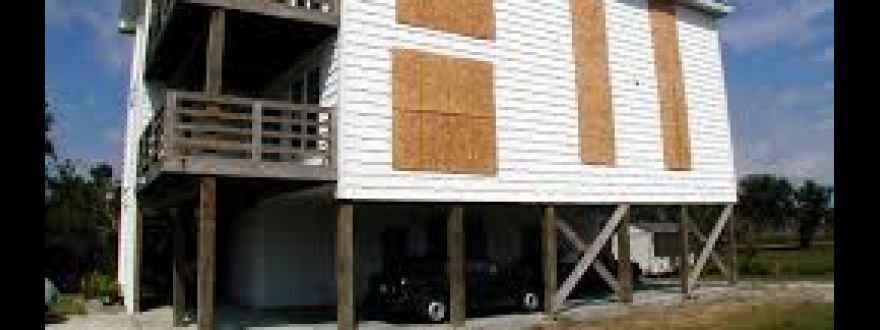
We've all seen the memes and heard the jokes about how a Florida local acts during hurricane season but the truth is that Florida has changed a lot since our last batch of hurricanes and I'm not sure those jokes are entirely true anymore. In a fifteen month period during 2004 and 2005, Florida was hit with five hurricanes Category 3 or higher and since we weren't completely destroyed we foolishly felt like we had somehow bested mother nature. Over the next eleven years hurricanes avoided Florida, opting for softer targets in less hurricane-ready states, and the population of Florida changed a lot. There are nearly 4 million new residents since 2005, meaning one in five current residents have never experienced a hurricane.
The last two years brought Irma and Michael, a wake-up call that revived those rusty gears of preparedness in the longtime locals that the unaccustomed new residents can learn from. Here are a few things locals are doing to be prepared for the next storm.
Remove trees
Sometimes the best way to reduce damage during a storm is to take preventative action. A lot of homes in Bay County would have avoided damage all together from Michael if not for trees falling on them. Pine trees grow about a foot a year and they come down with winds around 100 mph, which is produced by a typical Cat 2 storm. It may be time to get some removed from around your house or business. Locals know that not all trees are bad, here is an interesting article about trees that can withstand hurricanes.
Shutters and Generators
If you have them, know how to use them and where they go on the house. If you need them, know they come in many varieties and for all budgets. Homes with second story windows can be very difficult to attach shutters to, plan on putting them on early or know who you can call to assist. If you wait until the day before a storm comes, the person you call may be putting his own shutters on and unable to help. Start with the windward side and work your way around. Generators sometimes require special electrical or permanent gas connections, make sure you are set up correctly and maybe contact a professional like Ronco.
Pools, fences, and other structures
Many insurance policies now limit coverage for fences and pools to actual cash value or cap damages under a sublimit that is well below the replacement cost. Many commercial or Lloyds of London policies will exclude wind damage for fences and pools altogether. Some community associations have especially high value gates and fences; know that it can be difficult or expense to insure them properly, be aware what kind of coverage you have now so you can plan ahead. Also review the Coverage B on your insurance policy, which is Other Structures. This is especially important if you have a carriage house or detached garage and is often overlooked and undervalued.
Insurance value
Ultimately the amount you insure your home for largely comes down to your personal input. Your insurance agent can assist in valuing it using Replacement Cost Estimator (RCE) software but when was the last time you compared it to the actual replacement cost today? Material prices go up and labor get scarce after a catastrophic regionwide event, making the cost to replace your home or condo a lot higher than you may think. Some policies have built in inflation-guard wording, which increases the value of your home over time but if you don’t have that and it has been a while since you looked at it, maybe consider revising your insurable value.
Fuel and Cash
Locals know that 48 hours before a storm arrives, fuel starts to get scarce. Keep your vehicle as full as possible because if you need to leave on short notice you may not find an open gas station for 200 miles in any direction. Unleaded fuel only lasts a few months on the shelf so make sure you recycle it. If power lines go down, cash may be your only option to pay so have a few hundred dollars handy. On a larger note, make sure you have enough in the bank to cover your hurricane deductible, which can often be thousands of dollars. You may not have access to your insurance payment until the deductible gets paid so see how much your deductible is ahead of time.
You can't prepare for everything but preventative measures go a long way. To think like a local you need to think long-term, get a metal roof instead of replacing your shingles, get a permanently installed generator, keep a long term supply of food, buy a house that isn't in a flood zone, and if it comes to insurance questions don’t panic. At Norton Insurance, we've been here since 1982 and will be here for your next storm. Give us a call for a free quote or insurance review today!







